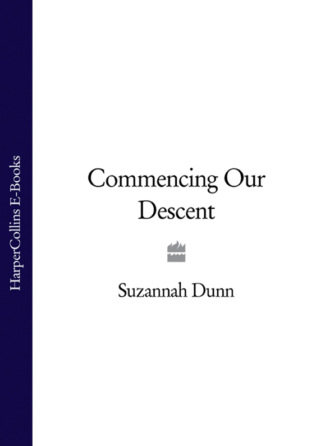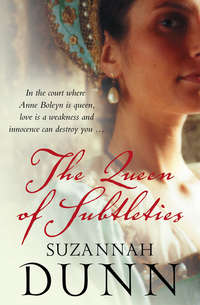
Полная версия
Commencing Our Descent
Passing the time before my flight to Venice, I drank coffee and read the destinations on the screens: my favourite, Port au Prince, that tricky mix of foreign and familiar. I watched names of cities moving very slowly up the screens, approaching their evocative, flashing last call. I watched for pilots: stray pilots, on the ground, always in pairs, just as in the air; always a path clearing for them, just as in the air. Those creases in their trousers, those caps, cuffs, shoes: I have never seen a pilot with scuffed shoes. No wonder, if they so rarely touch the ground, and then only the tiled floors of terminals.
I delayed passing into Departures, into the queue of people who are tense for the alarm that they imagine they will cause even though they know that they have nothing to hide. One of the X-ray operators yelled at people to stop looking over his shoulder for the juddering geometry that was their own bared luggage.
My guidebook claims that Venice has an annual total of twenty million tourists. I was happy, for those few days, to disappear into that immense crowd. The book complains that native inhabitants are in a minority, but I like cities that belong to no one in particular, cities that people have to make their own. I arrived by a vaporetto which veered, slammed into and bounced off each platform of wooden planks, and swayed on oil-black water, the motor groaning like a fog horn. The route was busy, the subdued air of the cabin was sheared time and time again by the sliding door. I envied the passengers their impressive coats. Most were travelling singly, and briskly; busy with newspapers. Several of them made perfunctory calls on their mobile phones, and I presumed that I was overhearing the Italian equivalent of, I’m on my way home, darling.
Close to St Mark’s, I found a one-star, family-run hotel: family photos on the wall amid the obligatory views of the Piazza under floodwater. A tabby prowled the reception desk while a cheerful, pregnant twentysomething recorded my details in her curly continental script. An inquisitive feline nose scanned the drying ink. The building was typically Venetian: tall and narrow, badly lit and poorly plumbed. On the way to my room, I made several turns of the shadowy wooden staircase to a soundtrack of distant cisterns. In my room there was a radiator which was cold, so that my scarce breath turned into translucent, billowing clouds. I went to bed to keep warm, and read for an hour or so before turning off the lamp and falling asleep.
I woke to voices, disembodied voices in the utter darkness of my room. Clear, jovial voices. I took a moment to realise that they were outside, below my window, three floors down in the alleyway. Two men, Italian. I turned to my alarm clock: twenty to one. From the rhythm of the conversation, I guessed that they were saying their goodbyes, patching the farewells with arrangements to meet again and then swapping suddenly-recalled, last-minute gossip: all the usual. What was unusual was that the voices were undiluted by any sounds of traffic; the silence around them, and beyond them, was stunning.
I was there for four days. I did very little traditional sightseeing, avoiding the interiors of most of the famous buildings and all of the galleries. Instead, I walked: in this city of water, I walked myself into the ground. Frequently, I stopped for coffee in tiny bakeries and bars, where, despite my attempts to conduct the exchange in Italian, the staff would reply in English and smile as if my nationality were a joke between us. As I downed musky little coffees at chrome counters, I watched the proprietors wiping surfaces, washing crockery, conversing dolefully with customers, and wondered whether they had come from elsewhere to try to make their living in this flood-troubled city. Every day, I breakfasted, lunched and dined on bread, cheese and fruit from the Rialto market, and developed the predictable but passionate conviction that this was how I should spend the rest of my life. All day, every day, I wandered, going nowhere in particular but purposefully crisscrossing the many, narrow, smooth canals of jade water.
The first two days I was freezing; the next two days I was too warm because the fog which seeped from the sea into the lagoon had burned away into a clear continental sky. I walked after dark, too, but never late because the locals seemed to be home by ten and most of the tourists were daytrippers. I sensed that no one was afraid of anyone else, that there was no one to be afraid of; but I was afraid of losing my way. Even on the main routes, the lanterns were few and sepia.
So, in the evenings I would venture from the Piazza San Marco along the main, broad waterfront, with the crowds of disembarking, homeward-bound Italians. Passing the Doges’ Palace, I heard the dozens of moored gondolas flapping on wavelets. Twenty minutes further down the esplanade was another world: no one but a few dog-walkers; and perhaps a young couple clinging to each other, theatrically threatening each other with the sheer drop into deeper water. Here, I would turn inland and take a detour down the Via Garibaldi – crowds, again, around market stalls, and in hardware shops – before returning to the open water and walking as far as the parkland that my map named as Giardini Pubblici. The greenery always came as a shock to me in the disused dockland darkness, in the far corner of such a treeless city.
By my second day, sore from so much walking, I was desperate to loosen up with a swim. At the tourist information office I was told that I would have to travel to Mestre, on the mainland, to find an indoor pool.
Water, water everywhere, and not a drop to swim in.
The woman who was advising me, who was dressed and made up like an air stewardess, drew my attention to the map beneath the glass surface of the desk. She tapped three specific areas, announcing with an air of efficiency, ‘One, two, three.’
‘Times?’ I asked, unnecessarily pidgin. ‘Open?’
She shrugged elaborately, and her gaze switched to the person who was behind me. But one of her colleagues stepped towards me. ‘Sports centre?’ she checked.
I shook my head, specified, ‘Swimming pool.’
The tip of a pink-painted fingernail landed on the glass and scratched circles of deliberation before skidding to the far south-west of the island of La Giudecca. ‘Here,’ she said, dubiously, then a little more decisively, ‘yes, here.’
‘There?’ Perilously close to the island marked inceneritore was a small extension of the furthest inhabited island.
Smiling, she reached for a phone and a phone book in which she re-enacted the ritual of the fingernail for some time and with increasing ferocity before she was satisfied. Then, having dialled, she had a brief conversation which sounded like a blazing row before she turned back to me with a slip of paper on which she had scribbled some days and times. Bashing the paper with the busy nail, she explained, ‘Open for the public.’
And so that was why, on my second day in Venice, I went out to Sacca Fisola, home to many of the workers. I travelled on a vaporetto away from the city into the wide Canale della Giudecca, the sludge-coloured water churned by a wind from the sea. When I reached the island and stepped from the wooden platform on to dry land, I bumped into a man who was running with a baby in a pushchair. Behind me, I heard the vaporetto perform a slow, aquatic equivalent of a skid, the ringing of the bollard by the rope lasso, the cheers of the crowd on deck in reply to his breathless thanks.
To cross the island, I took paths across patchy communal lawns and around blocks of flats which were concrete but comfortably low. In the shadows, children played ball, and above them, laundry flared on balconies. Every step of the way, I was scrutinised by cats; dozens of cats, marooned but content. I imagined a life for myself, there. On the far shore was a small, bridged swamp beyond which was a brick building. And that was how I came to spend half an hour swimming lengths in a brand new indoor glass-walled pool on the tip of an ancient, convoluted, and sinking city.
For four days, I never once looked at a painting and there was no one with me to know. Despite my aversion to sightseeing, though, I did read my guidebook from cover to cover, and, occasionally, I was enticed. I went to see the church which had a keel for a roof and loomed from Campo Francesco Morosini like a capsized ship; the work of ship-builders during a slack period. My only serious excursions were to the Basilica. Heeding the guidebook, I returned at various times of day to see the mosaic-encrusted ceilings and walls in differently-angled daylight. Mostly, they were lit by their own gold: that half a square mile of biblical scenes begun in the twelfth century and not completed until the nineteenth. I loved the thin but muscular angels, prophets, disciples and saints of the early scenes, with their cheekbone-sharpened scowls, ramrod spines and strappy sandals. By the fifteenth century, the Virgin Mary had developed jointed fingers and a slouch. The few nineteenth-century mosaics featured crowds of pastel-coloured characters who were swooning, reclining, or lunging with spears. As I paced the intricately patterned and unevenly worn floors, the only women who appeared in the scenes above me were the many Marys and a lone thirteenth-century Salome with a slinky, scarlet, furtrimmed dress, a suggestion of high heels and a pronounced wiggle to her hips.
I was inside another church when I realised what had happened to me. I was trawling the distant, dilapidated Cannaregio, looking through a pane of glass at something tiny and white that my guidebook told me was St Catherine’s foot. That was when I realised: if anyone from home pushed through the door and glanced over, they would almost certainly fail to see me. They would see somebody, an anonymous body, but not me, because I was so unlikely to be there, on my own, peering at a relic in the chilly gloom of an unexceptional church in a work-a-day area of Venice. I was invisible, I had disappeared.
The only traces of my disappeared days are in some of the thousands or millions of photos taken by my fellow tourists. In those photos, there are pieces of me – perhaps a turning shoulder, the toe of a shoe, a swing of my hair – and they are all over the world, making a worldwide splintered mosaic of my disappearance. There was something else that I realised: Venice had become mine, mine alone rather than the place where Philip and I had had our honeymoon. Never once, for me, was Venice missing Philip; never once did I miss him.
Pondering, yesterday, that first disappearance of mine, reminded me of George, his old photo. ‘I’ve found a photo,’ he told me, last week, ‘1942 written on the back. A close-up of me, but my sister’s beau is there: his arm, his shoulder, the side of his head. I was ten or eleven, and he used to take me fishing, bike-riding, exploring. I wonder, now, whether he did all that to impress her. He was the brother I never had; I worshipped him. I had two sisters, older, outgoing girls, marvellous. Then suddenly he never came to our house again. I don’t know which of them had the cause for complaint, or why. For years, I was desperate to see him again, hoped I’d bump into him. Never did. When I came across that photo, the other day, I wondered what became of him, and there was no one to ask.’
With some trepidation, I asked, ‘Your sisters?’
‘One’s dead – years ago – and the other, I’m afraid, can’t remember her own name. I hope to God that I don’t go the same way.’
I had first met George in the library, a couple of months ago, in the tiny photocopying room beyond the reference section. Taped to the back of the door was the handwritten puzzle, Do you have your original?, which made sense when I raised the lid and found a local history pamphlet. The cover illustration was an old photograph of what is now the town’s General Infirmary, but the title was The Workhouse.
‘Sorry.’ Someone had come into the doorway, was reaching with a liver-spotted hand for the pamphlet.
I looked back at the illustration, squinted at the familiar but shadowed landmark.
‘You didn’t know, did you, that the hospital was once the workhouse.’ This was a statement rather than a question, but surprised.
I smiled, amenable. ‘I didn’t, no.’
He was tweedy, tidy, balding, bespectacled; his accent was local, rural. ‘Oh, Gawd, yes,’ he winced, ‘I hated going there.’
‘Oh.’ Ah, a madman: the reference room’s resident madman.
‘With my job, I mean.’
I calculated: if he was in his sixties, he would have begun work between forty and fifty years ago. Was there still a workhouse in this town during the ‘forties or ‘fifties?
‘What was your job?’
‘Policeman.’
‘Oh.’ Instinctively, I focused on the room beyond him, on escape.
‘Well, detective.’
I had to admit, ‘You must have seen some things,’ and for a moment I was truly envious.
‘Yes,’ his tone echoed mine; but behind his square, goldrimmed lenses, the pale eyes had a reflective glaze. ‘I was never bored. Sounds odd, because I had some pretty awful jobs – I worked with a coroner for a while – but there was never a moment that I didn’t enjoy. And not many people can say that of their work.’ Folding his arms, he contemplated me. ‘And I liked the people: the villains, I mean. They had some stories to tell; when I think of the statements that I took …’ He shrugged.
‘Must have been hard work.’
‘Oh, no. my father – who was also a policeman, like his own father – said that the force was ideal for men who didn’t want to work. My reason for joining was the house: in those days, we were given a house.’
‘Oh.’ Not a bad reason.
‘But my father was right about the police force as the last refuge for mavericks.’
‘Really?’ I tried to hide my scepticism with a smile.
‘Oh, yes.’
Carefully polite, I ventured, ‘And you’d think the opposite was true.’
‘Would you?’ A widening of his eyes; eyes which, I suddenly realised, had been watching mine ever since he had appeared in the doorway. Was he humouring me? ‘You don’t watch those telly chaps?’
‘You’re telling me that real detectives are like Morse?’
‘Well, to be honest with you, I don’t see many of those serials; only in passing, because my wife watches. But, yes, detectives do everything their own way. Or did.’
‘Not nowadays?’
‘Well …’ he shrugged, ‘there have been changes.’
‘I can imagine.’ I even knew the word: rationalisation.
He stepped backwards through the doorway, apologising. ‘I’ve been rambling, I’ve kept you from your photocopying.’
‘Oh, no, no, not at all,’ and I was surprised that this was true. I wanted him to tell me more.
He asked, ‘Do you work? Or perhaps you’re at home with children?’
‘No children. I’m looking for work.’
‘I don’t envy you. One of my sons has been unemployed for a year, and he’s bored brainless, poor sod. Me, I’m ten months into retirement and finding something to do every day. Somewhere to go or something to do, or to read, to look up.’ He held the pamphlet aloft.
‘Mustn’t keep you.’
But a week or so later, we came across each other in the park, and he invited me to join him in the café.
‘By the way, I’m harmless,’ he reassured me, laughing. ‘Too old to be otherwise.’
Yesterday, Annie left me unsettled, so I decided to drop in on George, hoping for a serene half hour with him in his garden. But when he came to the door, he said, ‘I’ve a chap, here, from London, he’s come for some stories from me.’
‘Stories?’
‘Of work. Of working in the police force. Oral history. He’s taping me.’
I stepped back off the doorstep, but he insisted, ‘No, we’re finishing up, he has a train to catch. Two minutes, and then you and I can make some tea and take a tray into the garden.’
Hal and I followed him into his front room. The historian, in an armchair in the corner, was middle-aged and dressed in a dark suit. Looking up into sunshine, his small round lenses became medallions. He rose, tall amid the armchairs, and George began the obligatory chant, ‘Dr Robinson, Sadie Summerfield; Sadie, Dr Robinson.’
The man’s smile looked like a wince. I wished that he had stayed in his armchair, that George had not been provoked to compere this display; I could have slipped into the room. I dreaded looking down to see the fleece of Hal’s blond fur on those black trousers. The man was holding one of his hands towards me. I hate to shake hands, I become all thumbs; I hate the judgements that people make from handshakes. He said his first name, which I missed because he spoke quietly and I was saying hello. His hand had come and gone from mine before I had noticed.
I sat down; he sat down; Hal went towards him and had his head stroked. The hand was unmarked, ivory; the nails, too. Hal returned to me and lay down, panting close to the microphone on the coffee table. George settled into his chair. The interviewer leaned forward and pressed a switch on the tape recorder.
‘As I was saying,’ George told him, ‘this chap was well known to us.’
Watching the historian’s black wool sleeve scrape over a white cuff, I wondered why anyone would wear a suit in such weather and then not even remove the jacket in a stiflingly double-glazed, net-curtained, upholstered room. His face, though, was untouched by heat. Even the pink of lips was missing because he seemed to have none, he had a mere line for his mouth. He was colourless in a room slapped with sunshine, splashed with chintz, dotted with vases. Looking downwards, head inclined in listening pose, he was eerily motionless in the company of animated monologue and convulsive canine panting. He could have been a black-and-white photograph of a person, he was no more than an arrangement of shadows, the smallest and darkest of which resembled the indentation of a fingertip in the inner corner of each eye. By contrast, his temples shone below a receding hairline.
‘He used to go into the countryside and pick this moss which is important to florists, then he’d come into a town when the florist had shut up shop for the day, he’d go next door and ask if he could leave Mrs Bloggs’ order of moss with them, and would they pay him the two quid or whatever? The following day, of course, Mrs Bloggs breaks the news to her neighbour that she’s never heard of this man or his moss.’
A tightening of one corner of the interviewer’s mouth, the screwing down of a smile, then he glanced at me and I saw how all his colour was in his eyes: china blue; very dark, for a blue.
‘And he did the same with blackberries and greengrocers, in season. Hard for us to keep the evidence, in those cases. I suspect that many shopkeepers didn’t complain, but some did. I was never particularly interested in bringing him in, I wasn’t going to go and look for him, I knew that he was around, so when we’d had a lot of complaints, I’d contact the spike –’
‘Spike?’ the interviewer queried.
‘Workhouse. And I’d ask them to let me know when he turned up. And he always turned up, for the winter. He knew that I’d come for him, and then he’d be sent down, which was what he wanted because then he had food and shelter for the winter.’
I shuddered to think of that hopeless trading of workhouse for prison.
‘Mind you, in the end, a judge lost patience and sent him down for three years – three years, quite unnecessary – and I never came across him again.’
Suddenly the session seemed to have finished: the historian was packing away his paraphernalia, going for his train.
Конец ознакомительного фрагмента.
Текст предоставлен ООО «ЛитРес».
Прочитайте эту книгу целиком, купив полную легальную версию на ЛитРес.
Безопасно оплатить книгу можно банковской картой Visa, MasterCard, Maestro, со счета мобильного телефона, с платежного терминала, в салоне МТС или Связной, через PayPal, WebMoney, Яндекс.Деньги, QIWI Кошелек, бонусными картами или другим удобным Вам способом.






